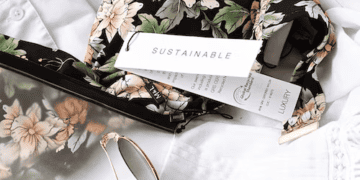The luxury industry is facing a unique conundrum as it continues to thrive despite global crises, economic downturns, and health pandemics. Analysts even question whether the impressive growth in luxury goods will ever cease. According to Dominion Funds, luxury spending consistently outpaces overall economic growth. However, a critical factor has emerged as a potential game-changer: climate and environmental sustainability. Can the planet sustain the opulence, extravagance, and exclusivity that define the luxury sector?
It is important to note that the sustainability concerns related to luxury do not exclusively affect the wealthy. Experts such as Peter Wells from Cardiff University and Anne Touboulic from the University of Nottingham highlight the ecological footprint of an average citizen in affluent countries like the UK. Their research suggests that if the entire global population were to adopt this standard of living, we would require 3.7 planets. In the United States, high-income families have a carbon footprint five times greater than the poorest, and the average American leaves a carbon footprint five times higher than the global average.
For the affluent and famous, consumption reaches unprecedented levels, with private jets, yachts, jewelry, sports cars, high-end fashion brands, and extravagant lifestyles leaving a substantial environmental impact. As Wells and Touboulic emphasize, a single private jet flight from Aspen, Colorado, to San Francisco emits 4.4 tonnes of CO2, equivalent to 2.75 times the annual emissions of an average car (1.6 tonnes) or 60% of the typical person’s yearly carbon footprint (7.3 tonnes).
A BROADER IMPACT BEYOND THE WEALTHIEST
It is no surprise that climate activists critique private jets and the lifestyles of billionaires. Additionally, some climate-denial organizations accuse celebrities of hypocrisy when their environmental rhetoric contradicts their actions, such as actor Woody Harrelson reportedly having vegan fashion items flown from the US to Cannes. Some prominent influencers, film and music idols champion environmental causes while remaining dedicated patrons of a market seemingly misaligned with such values.
Nevertheless, certain segments of the luxury industry are endeavoring to attract environmentally-conscious consumers by implementing changes. One notable trend is in the perfume industry, where refillable perfume bottles are gaining popularity. While this trend remains a minority, with refillable fragrances accounting for only 6% of European sales and refills for just 1%, there was a notable 31% increase in 2022 compared to the previous year.
CAN LUXURY AND SUSTAINABILITY COEXIST?
The fashion sector, however, presents a challenge when it comes to sustainability. Globally, the textile industry contributes up to 10% of global emissions. A study by Spanish universities ESIC, IE, and Complutense de Madrid paradoxically suggests that luxury brands are pioneering sustainability efforts in the fashion industry. Many luxury brands are shunning fur and seeking recycled materials, such as beach flip-flops (Chloé) or fishing nets (Prada), and promoting biomaterials, second-hand and “deadstock” materials, and collaborating with environmental organizations on ecosystem restoration and sustainable agricultural production.
The study employs the methodology of the UN’s Intergovernmental Panel on Climate Change and identifies an interesting aspect of sustainability for luxury companies. It reveals that, as production increases, emissions tend to stabilize at a market share of 11-13%, resulting in less pollution per unit of product sold. In particular, the study highlights the French multinational holding company LVMH (Moët Hennessy Louis Vuitton) as a model for its efficiency in reducing CO2 emissions.
In conclusion, the luxury industry is responding to the perception that luxury and sustainability are at odds with notable efforts and initiatives. While experts caution against greenwashing, the industry must adapt to changing times. As per the Spanish study, younger and more environmentally-conscious generations now account for half of the luxury market, indicating that for these consumers, preserving the planet is not a luxury but a necessity.
Get the latest supply chain report news insights at The Supply Chain Report. For international trade resources, visit ADAMftd.com.
#LuxuryIndustry #SustainableLuxury #ClimateImpact #EnvironmentalSustainability #EcoLuxury #LuxuryConsumption #SustainabilityInFashion #EcoFriendlyLuxury #LuxuryBrands #Greenwashing #SustainableLiving #LuxuryAndSustainability #CarbonFootprint #AffluentLifestyle #LuxuryTrends #LuxuryGoods #SustainableFashion #LuxuryMarket #EnvironmentalImpact #SustainabilityInPerfume #GreenLuxury















